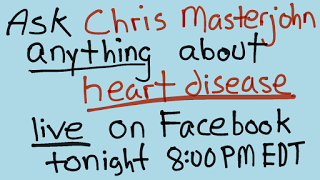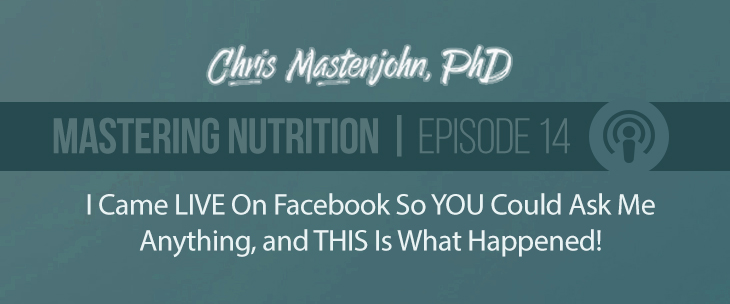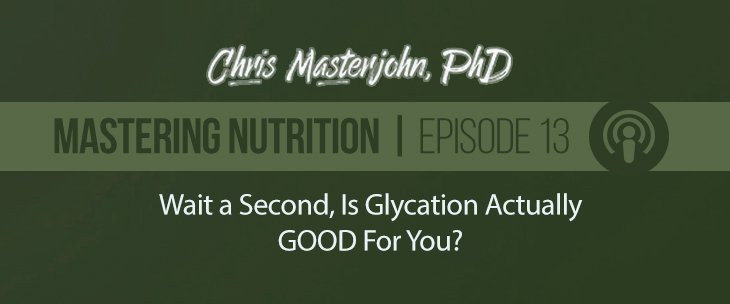I have a new post over at Mother Nature Obeyed:
This is my response to the new study published in AJCN showing that replacing butter with sunflower oil decreases liver fat, PCSK9, and improves a handful of metabolic markers. I begin with a critical review of the 2010 meta-analysis by Mozaffarian and colleagues claiming that the randomized, controlled trials substituting vegetable oils for saturated fats show that this swap reduces heart disease risk, which was cited by the AJCN authors in justification of their research approach. I then move on to reviewing the animal evidence suggesting that saturated fats increase fatty liver in certain contexts while polyunsaturated fats do so in others. I conclude by reviewing the AJCN study and lamenting its irrelevance. I suppose this is quite long for an analysis of a study I finally conclude is irrelevant, but I hoped we might all learn a few things (especially including myself!) and perhaps score a chuckle or two in the process.
Enjoy!



Hey Chris. Have you seen this video? You get a mention in it. I found it pretty interesting.
https://www.youtube.com/watch?v=WOcfxpZi6a0
Should you not be sending a letter to the journal itself – the journals I've been involved with (in a totally different discipline) usually publish a selection of letters in response to journal articles. Of course, these letters need to meet a certain technical standard, but I don't think you'd have a problem there?
Hi Chris,
Here's another study claiming that saturated fat (not trans fat) impairs cognitive function in women: https://www.sciencedaily.com/releases/2012/05/120518081358.htm
I have relatives emailing me this article telling me that I'm nuts for eating butter, coconut oil and pate (made with lard).
How do I tell them that saturated fat isn't robbing me of my memory?
From the press release of that study, it does not sound as though they have adequately addressed confounders. Eating red meat and butter correlate to a number of other unhealthy practices, because those who are "health conscious" tend to avoid eating those things. Smoking rates would be a big one. Anything that increases oxidative stress would be implicated. Perhaps their diets, on balance, lacked adequate antioxidant supportive nutrition coupled with higher rates of obesity, smoking, and so on, could easily account for the result.
There is no verified, or plausible biochemical/physiological pathway that I'm aware of for how saturated fat itself could cause neurodegeneration. Afterall, your body will make a mix of saturates (primarily palmitate) and mono-unsaturates out of excess carbohydrate if fat intake is restricted enough. Saturated fats are vital parts of cell membranes and are necessary in nervous tissue as well..
Chris (not Masterjohn!)
On the vitamin E question;
vitamin E is required for proper seperation of beta-carotene (etc) into retinol. If tocopherol is deficient, beta-apocarotenoids are formed,
https://www.ncbi.nlm.nih.gov/pubmed/10980399
which are vitamin A antagonists.
https://www.researchgate.net/publication/221896111_Naturally-occurring_eccentric_cleavage_products_of_provitamin_A_beta-carotene_function_as_antagonists_of_retinoic_acid_receptors
Here is one mechanism for carcinogenic effects of PUFA.
Chris, awesome job as usual. I listened to your last podcast with Chris Kresser again and took notes, but I'm trying to find any and all of the articles you and he have written that cover the topic of individual cholesterol variation. If you get a chance, could you post a link to one of them in the comments?
Thanks captain butter 🙂
It ain't irrelevant if it makes a person laugh out loud, and I did (many times.)
Thanks for yet another wonderful article, Chris.
Hi Chris. I read the whole thing, and while I must admit that much of it sails over my head, I truly do appreciate all of your writings. They are incredibly informative and appear to me at least, to be as free of bias as anything I read in the field of nutrition and health. You are one of the few who consistently does not try to pretend he has all the answers to all the questions. Meanwhile, what you do know and talk about is extremely informative.
I have a question regarding the LA Veterans study. First, let me say that my cynical mind finds it hard to believe there could have been such a huge discrepancy in the smoking habits of both groups if people were truly "randomized". Be that as it may, my first question is that wouldn't that MORE than make up for the difference in cardiac events. I don't know if that's possible to answer, but it sure seems to me that it would. Secondly, I often hear of multivariate analysis that is supposed to account for some confounders, at least as best as possible. Was this not attempted on this data and if not, could it not? Finally, since we know that smokers in general are not exactly pristine about their other health habits (exercise, alcohol consumption etc…) was there any attempt to account for any other confounders?
Thank you very much Chris. You truly are gifted and generous to a fault to provide us with your hard earned knowledge.
Hi Mario,
Yes they did try to deal with the smoking issue, and if you look at the graph where I showed the incidence of fatal atherosclerotic events by diet, you can follow the link to the reference just before that graph to find the appropriate citation. You can see in the graph that there isn't much difference in CVD between diet group in those smoking <10 cigarettes a day, but unfortunately they didn't separate light smokers from non-smokers in that analysis. Also, there are a few other endpoints I could have shown (as opposed to fatal atherosclerotic events) and the data are somewhat different from each endpoint. They didn't go into any detail about associated confounders, and unfortunately they didn't publish an analysis to my knowledge of cancer stratified by smoking, but we can imagine that total mortality would have been adversely affected by vegetable oil if it weren't for the smoking issue, since that presumably not only led to the excess of atherosclerotic death in the control group but also minimized the excess of cancers in the vegetable oil grouip.
Thank you so much for your kind and generous words.
Chris
Speaking of cholesterol, there is some interesting news:
__________________________
Gene Study Questions Impact of Increasing 'Good' Cholesterol Levels
May 16, 2012 — It is widely believed that raising "good" cholesterol levels lowers heart attack risk, but surprising new research finds evidence that this may not be the case.
Genetic studies failed to show a link between higher concentrations of high-density lipoprotein (HDL) cholesterol and lower heart attack risk.
…
https://www.webmd.com/cholesterol-management/news/20120516/raising-hdl-levels-may-not-lower-heart-attack-risk
Cool, thanks!
Chris
There was a great video presentation recently that basically talked about a study on studies (sorry, can't find the (NIH?) link).
They found that despite a study's own data, the conclusion would always be favorable to the financier… and if there was no way to put a positive spin on it, they would simply bury it!
That reminds me of the famous rabbit model that is often cited whenever cholesterol comes up.. the fact that if the rabbits were fed animal/fat diets, and they developed symptoms of CHD, isn't that pretty damning evidence against eating meat, regardless of the reason (i.e. poor liver uptake and/or staying in the bloodstream too long)?
Hi Tim,
Yes it certainly suggests that about rabbits, although not all rabbits are equally sensitive and that seems to relate to thyroid status, but it doesn't produce this effect on other species such as rats or dogs, so before we generalize to humans we need to understand the mechanism so we can determine whether humans are closer to rabbits or closer to rats and dogs with respect to their metabolism of these foods. Alternatively, we can study the issue in humans, which is what I primarily dealt with in this post.
Chris